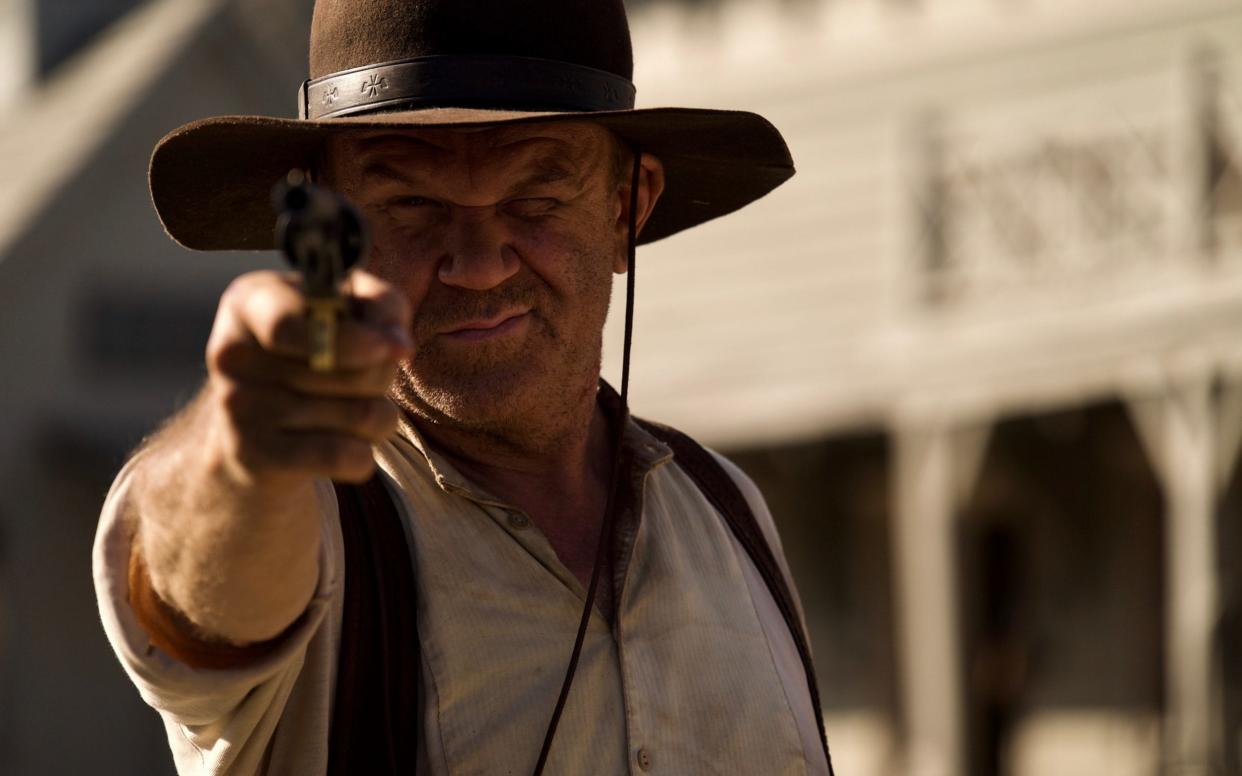The Sisters Brothers, review: Jacques Audiard's Western feels like a lot of shots in the dark

Dir: Jacques Audiard; Starring: Joaquin Phoenix, John C Reilly, Riz Ahmed, Jake Gyllenhaal, Rebecca Root, Rutger Hauer. 15 cert, 122 mins.
“Have you noticed how long it’s been since anyone tried to kill us?” Eli Sisters (John C Reilly) observes as he and his younger brother Charlie (Joaquin Phoenix) clop across the sunbaked Oregon brush. As two bounty hunters in the employ of a vindictive small-town lawmaker known as the Commodore (a quick, sly cameo for Rutger Hauer), dodging bullets is business as usual for the Sisters brothers, the two saddlesore Sancho Panzas at the heart of Jacques Audiard’s picaresque western, adapted by its director and his regular co-writer Thomas Bidegain from the book by Patrick deWitt.
The brothers’ own target, at least when we join them, is a chemist called Hermann Kermit Warm (Riz Ahmed), who is rumoured to have made some breakthrough that could upend the whole California Gold Rush. With intel from a detective called John Morris (Jake Gyllenhaal), another of the Commodore’s cronies who has wormed his way into Warm’s good graces, the brothers give chase on the trail to San Francisco, although a string of by turns grotesque and ludicrous misadventures en route make them question their loyalty to – well, just about everyone, other than their ornery and odoriferous selves.
Audiard is the French director of Rust and Bone and A Prophet, and The Sisters Brothers is his first English-language feature. But it is Reilly’s passion project: the Step Brothers and Stan & Ollie actor bought the rights to the novel as soon as it was published in 2011, presumably with a view to playing the ungainly but tender-hearted Eli, who was the narrator in deWitt’s novel.
The role proves an excellent fit. Eli’s oafishness allows for some fine physical comedy – there is a nicely played running joke about him learning how to use a toothbrush – but his ever-prickling conscience makes him a more finely shaded figure than his angrier, drunker, younger sibling.
As semi-outcasts surviving with their fists, both fall comfortably into that typically Audiardian character type, the junk male, and the film’s own bravado and bluster matches that of its rowdy heroes. The shootouts have a dreamlike quality, with pistols belching sparks like miniature steam train funnels, while the brothers’ monstrous father – the source of what Charlie calls their “foul blood” – is glimpsed in Eli’s nightmares, chopping limbs like lumber.
The film was shot almost entirely in Spain, and cinematographer Benoit Debie ably evokes the scuzzy grandeur of the genre’s spaghetti phase. Ahmed, meanwhile, brings depth and texture, plus a winning idealistic twinkle, to what could have been a bland straight-man role. As westerns go, this is Ahmed’s first rodeo, and his appearance here is a smart bit of lateral casting in a film not short on them: see also the British transgender actress Rebecca Root, grooving on Joan Crawford in Johnny Guitar as a daunting saloon proprietress.
Charismatic, brutal and stylish, The Sisters Brothers is a film that’s easy to say nice things about, and many critics have been doing just that since its premiere at Venice last September, where Audiard nabbed the festival’s best director prize. Yet even after a second viewing earlier this week, its meandering this-and-that structure still didn’t click with me: like the film’s (intentionally) confusing opening midnight siege on a farmhouse, it can feel like a lot of wild shots in the dark.
The regular shifts in focus between the brothers and Warm and Morris make it hard to settle into any one character’s company – when both parties are finally united you can feel the entire film relax around them. And there is little sense their wild experiences are amounting to much, especially in the wake of the film’s serene coda, which has been faithfully ported over from deWitt’s book but on screen feels like a woolly anticlimax.
Closing on a hopeful note isn’t the done thing in westerns these days, which from The Hateful Eight to The Ballad of Buster Scruggs are going through a particularly dour revisionist streak. That makes The Sisters Brothers a curio – and well worth watching, even if it amuses more than it moves.

